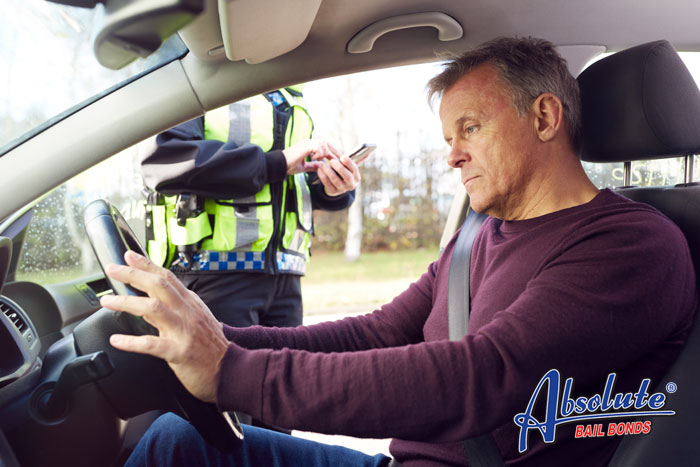
Evacuating from Wildfires
Wildfires are terrifying. Not only do they happen unexpectedly but they leave a path of total destruction in their wake. If there is a wildfire in your area, you should start preparing for evacuation as soon as you hear the news. Getting started early means you’ll be ready to go if the police do issue a formal evacuation notice.
Fill Up Your Gas Tank
When there is a wildfire in the vicinity, the last thing most people want to think about is gasoline, but taking a trip to the nearest gas station should be your first priority. Fill up your car’s gas tank so that it’s ready to go if there’s an ordered evacuation. The full gas tank allows you to quickly put a safe amount of space between you and the wildfire.
Secure Your Pets
If you have pets, you should plan on bringing them with you. The problem is that the smell of smoke and your anxiety changes their behavior. This makes it difficult to catch them. Rather than run the risk of them getting lose or you being unable to load them into the car, catch them as soon as possible.
Pack Your Vehicle
The next thing you need to do is pack your vehicle. The idea is to have everything ready to go so that as soon as the police issue an evacuation order, you can jump in your vehicle and hit the road. Items you should pack include water, some quick snacks, money, important papers, pet supplies, and enough clothing to get you through a few days.
Fireproof Your Home
Once you’ve prepared for a possible wildfire evacuation, you can go around your home and prepare it for a wildfire. While there isn’t a lot you can do to save your home if the wildfire reaches your property, you can do things that lower the risk. Simple things that can be done include moving anything flammable, such as gas cans, bags of leaves, and paint can at least 30 feet from your home’s foundation. Clear dead leaves from your gutters. Make sure there isn’t anything in your yard that could make it difficult for firefighters to reach your home.
Good luck and stay safe!

Will Your California Driver’s License Automatically Be Suspended After a DUI?
Getting a DUI is a traumatic event. One of the hardest things is that it impacts your life for a long time. For most people, the biggest challenge is losing their driving privileges. Many people assume that as soon as they’re convicted of a DUI they will lose their license for several months, but that’s no longer the case. Traditionally, a first-time DUI conviction resulted in a 6-10 month license suspension.
Yes, many people in California do have their license suspended following a DUI arrest, but some don’t realize that there is another option.
Few people know that it’s the California DMV, not the sitting judge, who determines what your driving privileges are following a DUI. Many people are surprised to learn that there will also be a DUI hearing that’s conducted by the DMV and it is during this hearing that post-DUI driving privileges are discussed.
The purpose of the DUI hearing is to decide what should be done with your driver’s license. One of the interesting things about current DUI DMV hearings is that the panel doesn’t always instantly order a license suspension. Starting in 2019, the DMV ruled that some drivers who were dealing with their first DUI charge would be allowed to continue driving, with restrictions, provided they were willing to have an ignition interlock device fitted to their vehicle. The reason for this decision is so that the person doesn’t have to worry about losing their job because they can’t get to work without a license. The other advantage of not automatically suspending a license was that it enabled parents to continue transporting their children to school and other activities. Currently, the DMV installs the IID on cars for about four months in first-time DUI cases. Second/third-time offenders will usually have to deal with the IID for one to two years.
To ask for the IID rather than a full license suspension, you have to contact the DMV and request a hearing. This request has to be placed within 10 days of your DUI arrest. Failing to do so will result in the automatic suspension of your license.
If you miss the 10-day window, the DMV will suspend your license and let you know how long the suspension will be in place.
The process of getting your license reinstated will involve:
- Completing California’s DUI school
- Providing the DMV with an SR-22 Insurance form
- Paying a $125 reinstatement fee
All things considered, it really is in your best interest to contact the DMV shortly after you’ve been arrested for a DUI and booking a formal hearing.

Safety Tips for College Students
It’s the time of year when many young adults are preparing for their first semester of college. In most cases, this is the first time they have lived without the supervision and guidance of their parents. One of the things collegebound students should already be reviewing is how they can make sure that they have fun and manage to stay safe during their freshman year.
Always Be Mindful of Your Safety
The great thing about living in a dorm is that the close living quarters means forming a tight bond with many of the people living on your floor. The downside to living in a dorm is that the sense of family and friendship can cause you to become lax when it comes to your safety. The biggest problem many students encounter while living in the dorm is that they become so comfortable that they start neglecting to lock their doors.
From day one, get into the habit of locking your door and double-checking the lock each time you enter and leave your dorm room.
Establish the Buddy System
While staying in your dorm and only going to classes will keep you safe, it’s not much fun. Rather than locking yourself away, get into the habit of creating a buddy program when you go out. Make a deal with a few different friends that no one goes home without the others and to keep an eye on one another the entire time you’re out and having a good time.
Keep Your Phone Charged
Each time you leave your dorm room make sure your phone is fully charged and that it’s easily accessible. It’s your first line of defense if you get into trouble while you’re out.
Pay Attention to Your Surroundings
When you’re out and about, pay attention to your surroundings. Stay in brightly lit areas. Stick to areas that are populated and heavily patrolled by campus security. Keep your eyes on the environment rather than on your phone.
Get Your Own Drinks
It doesn’t matter if you’re at a party, relaxing in your own room, or at a local pizza place, always get your own drinks. You should also never leave your drink unattended. If for some reason you do have to walk away from your drink, discard the unfinished portion and get yourself a new one.
Don’t be Afraid to Contact Campus Security
If your friends leave without you, it’s better to contact campus security and have them give you a ride back to your dorm than to try to walk home alone. Remember, that they’re paid to protect you.
Following these safety tips and using common sense provides you with the tools needed to stay safe while also enjoying your first year of college life.
Establish Patterns for Contacting Loved Ones
While you don’t necessarily want to always use the same route for going to classes and parties, you do want to establish good patterns when it comes to checking in with friends and family. Checking in on a specific day of the week and close to the same time each time is a good warning system if something goes wrong. If you don’t check-in, they know that they should contact the authorities and have someone do a physical check on you.

Off-roading in California’s State and National Parks
Off-roading isn’t just a lot of fun, it’s also a great way to see parts of California’s state and national parks you wouldn’t otherwise, get to see. Off-roading provides you with the means to visit more remote areas than the traditional roads take you to, while also allowing you to cover more ground than you would if you were hiking or biking.
While there are many benefits connected to off-roading through California’s state and national parks, going off-road also means you have some additional responsibilities you must adhere to.
Make Sure Your Permit is Current
You’re not allowed to hop into your ATV and start tooling around California’s state and national parks. The only people who are allowed to enjoy off-road adventures are those who have the proper permits.
If you’re going on an off-road adventure in one of California’s state parks, you need to fill out an application with California’s Department of Parks and Recreation. The vehicle you are using must comply with current state environmental codes, and your off-highway vehicle permit must be kept current. The OHV permit is $25 if you’re purchasing a season-long pass. You only have to pay $5 for a day pass.
If you’re not a California resident, you still have to purchase an OHV permit before you can embark on an off-road adventure through the truly stunning state parks. The cost of the permit for non-residents is $30.
Off-Roading in National Parks
Some people make the mistake of thinking that because they got an OHV permit from the state, that they can also go off-roading in California’s national parks. That’s not the case. The National Park Service manages the National Parks and has its own permit. You’ll have to contact the National Park Service to learn about the application process and cost of the off-road permit.
Follow the Rules
Don’t assume that your off-road permit allows you to go anywhere and do whatever you want. That’s not the case at all. The National Park Service in particular is diligent about enforcing rules that pertain to what you can and can’t do while off-roading. Breaking one of the rules could end up costing you a lot of money.
If you’re going off-roading it’s important to find out exactly where you can and can’t go. Most parks have maps and even post the areas where you’re not allowed to take your off-road vehicle.
Simply getting caught off-roading in a section of a National Park, where off-roading is prohibited, is considered a violation of Title 36 of the Code of Federal Regulations. If you’re convicted of the violation, you could be sentenced to as much as 6 months in prison and also fined $5,000. Additional charges that are often added to this violation include violating an endangered
species, littering, wildlife, plants, and natural or cultural features violations, and damaging archeological resources.
Have fun on all of your off-road adventures this summer!

Can You Go to Jail for Online Scams?
If you’re wondering if you can go to jail for instigating an online scam, the answer is yes.
If your wondering if you will go to jail for an online scam you’ve run, the answer isn’t as clear.
The first thing you need to understand is that it doesn’t matter what you’re doing, if you’re using a dishonest method for getting money out of people, you’re running a scam and that is always illegal. It doesn’t matter if you managed to acquire $20 or $20,000, the scam was still illegal. If the police catch on to what you’re doing and have enough evidence, you will be charged.
The types of internet crimes individuals have been charged with in California include:
- Phishing
- Online credit card fraud
- Romance scams
- Ponzi schemes
- Greeting card scams
- Bank loan scams
- Identity theft scams
- Craigslist scams
The amount of money you collected via the online scam will influence whether you’ll go to jail if you’re convicted and also how long you’ll be imprisoned.
If the scam had minimal financial consequences, it’s likely that you’ll be charged with a misdemeanor. While the sentencing could include a year in jail, the judge may decide that you only have to pay a fine or do community service. You could also be placed on probation.
If you acquired a larger sum of money, it’s likely you’ll be charged with a felony. In that case the likelihood of you being sent to jail increases. If you’re convicted, the consequences could include being sentenced to time in a state prison, massive fines, and felony probation. The number of victims involved in the scam as well as your criminal history can also play a huge role in how much time you spend in jail as a result of internet crimes.
A stint in jail will likely be only one of the hardships you face following a guilty conviction for perpetrating an online scam. It’s likely that your victims will decide to file civil suits against you as well.

Stay Out of Jail This Saint Patrick’s Day
Saint Patrick’s Day is a great holiday. It’s one of those fun holidays where you’re encouraged to cut loose and have a good time. The problem with Saint Patrick’s Day is that it’s also a time when many people get a little too relaxed and end up in jail. Happily, there are things you can do to make sure you enjoy the holiday and also stay on the right side of the law.
Check Out Current Pandemic Restrictions
Last year, Saint Patrick’s Day was interrupted and virtually canceled because of the pandemic. This year it doesn’t look like things will be quite as restricted but that doesn’t mean you’ll be able to do whatever you want. Before heading out, check both state and local restrictions and know exactly what you can and can’t do. Also, make sure you adhere to social distancing guidelines and wear your face mask while you’re in public areas.
Have a Designated Driver
Saint Patrick’s Day is one of the biggest drinking nights of the year. Expect that the cops will be out and that they will be looking for drunk drivers. If you plan on drinking, do the smart thing and have a designated driver on hand. If none of your friends want to be the DD at least arrange for a rideshare program or cab to take you wherever you want to go.
The best way to avoid the temptation of getting behind the wheel after you’ve been drinking is leaving your car at home and getting a ride both to and from your favorite bar.
Don’t Lose Your Head
While drunk driving makes up the bulk of Saint Patrick’s Day arrests, it’s not the only thing that can result in your spending a night in jail. Other common arrests during the holiday include drunk and disorderly, assault, and public intoxication charges. If you’re prone to drinking to the point where you lose all your inhibitions and do things you’ll regret, either bring a friend along who will remain levelheaded and prevent you from doing something you shouldn’t or restrict your celebrating to your home.
Stay safe and use good judgment this Saint Patrick’s Day!

False Allegations of Child Abuse in California
Child abuse laws are designed to protect children from being hurt. They’re good laws that make a lot of sense. Unfortunately, they are also laws that can be used against people, particularly parents who are engaged in a child custody dispute. It’s not unheard of for one parent to accuse the other parent of child abuse in order to obtain full custody of the children. It’s an accusation that can deal a lasting blow to both sides.
While there have been instances of men lodging false child abuse claims against women, it’s far more common for a woman to falsely accuse a man of child abuse. Data collected by the Stop Abusive and Violent Environments (SAVE) indicates that 85% of all child abuse protective orders are filed by men and issued against men. One lawyer estimates that approximately 90% of those that are filed during a divorce and that mention child abuse are a tactical move to gain custody of the children.
California’s family court judges are legally obligated to take all child abuse accusations seriously. The last thing anyone wants is for a child to be hurt because the court failed to act. As soon as one parent accuses the other of child abuse, the court will take action, usually siding with the parent who made the accusation. If you are the one accused of abusing children, you shouldn’t assume that you’re promptly out of luck. You do have to be willing to take a defensive stance.
It’s in your best interest to demand that the court investigate the accusations. Be prepared for this to involve an in-depth and invasive investigation into your background. Court-appointed experts will interview several people which can include:
- Your children
- Family
- Friendly
- Doctors
- Teachers
The process is time-consuming and often frustrating. When you feel impatient, remind yourself that you’re doing this for the good of your child.
The topic of false child abuse accusations in California is addressed in Family Code section 3027. According to the code, once it’s proven that the allegations filed against you were knowingly false, you have the right to seek monetary compensation for your court fees and additional costs that were connected to proving your innocence. The result of the investigation could lead to a significant change in which parent is granted custody of the children.

Mail Theft in California
Lawmakers aren’t fooling around when it comes to people messing with other people’s mail. The issue of mail theft is explored in US Code Section 1708. It’s important to understand that because mail theft involves the United States Postal Service, a federal agency, mail theft is considered a federal offense. The State of California will likely add a few charges as well.
What is Mail Theft
If you read US Code 18 Section 1708 you’ll learn that taking any piece of mail that wasn’t sent to you is considered mail theft. It doesn’t matter if the mail is taken directly from a post office employee, snatched from a mailbox, or snuck of a mail truck. It’s all mail theft.
Additional Offenses That Are Frequently Added to Mail Theft Charges
It’s rare for a person to be charged with just mail theft and nothing else. Identity theft is one the charge that’s most commonly linked to mail theft. Identity theft charges are usually added if the stolen mail included:
- Birthdates
- Social security numbers
- Birth certificates
- Tax I.D. numbers
- Banking/credit card account information
- Death certificate information
- School I.D. numbers
- Driver’s license numbers
Other charges that have been added to mail theft include:
- Assault
- Breaking and entering
- Embezzlement
- Deception
- Fraud
Federal Consequences of Mail Fraud
The government is messing around with mail theft. They want everyone to think twice about what they could lose before they snatch up a piece of unattended mail. If you’re found guilty of federal mail fraud, the maximum sentence includes:
- Up to $250,000 in fines
- Up to 5 years in a federal prison
Getting Charged with Mail Theft in California
California lawmakers are serious about mail theft. Anyone who is caught stealing someone else’s mail will likely find that in addition to dealing with the federal court, they’ll also be charged by the state. California’s Penal Code 530.5e PC states that “every person who commits mail theft, as defined in Section 1708 of Title 18 of the United States Code, is guilty of a public offense, and upon conviction therefor shall be punished by a fine, by imprisonment in a county jail not to exceed one year, or by both a fine and imprisonment.”
The interesting thing about California and mail theft is that it is one of the only theft type crimes where the punishment isn’t determined by the monetary amount of the crime. The state doesn’t care if you stole a couple of thousand dollars worth of mailed paychecks from your neighbor or if you simply swiped a handful of sales flyers from an unattended mailbag. The consequences will be the same.
What if Mail was Delivered to the Wrong Person?
If a postal employee delivers the someone else’s mail to you, don’t panic and assume that you’re going to be charged with mail theft. This is an honest mistake. It’s also something you need to take care of immediately. As soon as you discover the error, contact the post office, and alert them to the situation. You’ll be instructed on how to return the mail to the post office. What you shouldn’t do is throw the mail away or to put the mail in your neighbor’s mailbox.

Falling Asleep Behind the Wheel in California
We’ve all done it. Gotten behind the wheel and driven when we were tired. Most of the time rolling down the window, cranking up the radio, and indulging in a massive amount of caffeine is enough to get us safely where we need to be. The problem is that some people don’t make it to their destination. Some people fall asleep while they’re behind the wheel and find themselves in serious legal trouble.
The Dangers of Falling Asleep While Driving
People constantly warn us about driving while intoxicated. We know it’s dangerous and know that it’s a serious traffic offense. People rarely discuss the fact that driving while fatigued is equally dangerous. In most cases driving is monotonous. It’s so easy to let your eyes close for a second. That’s all it takes for us to fall asleep and get into a bad accident.
If you’ve ever driven while drowsy you’re not alone. The National Highway Traffic Safety Administration (NHTSA) reports that approximately 100,000 police-reported car accidents involved drowsy driving. It’s estimated that 72,000 of those accidents led to severe injuries and that 1,600 involved fatalities.
How California Handles Drowsy Driving Cases
Each time you get behind the wheel of your car, you’re entering into an unspoken, but legally binding contract with everyone that you’re fit for driving. Getting behind the wheel means that you plan on following all posted traffic laws, that you’ll stay alert, and that you’ll drive defensively. This means you won’t be distracted, you’re not intoxicated, and you’re not fatigued.
Failing to keep up your end of the agreement results in traffic tickets and possibly jail time.
If you’re caught driving while drowsy in California, at best, you’ll get a ticket for reckless driving. According to the state, you’re driving recklessly any time you, “drive any vehicle in a manner that exhibits willful or wanton disregard for the well-being of others on the roadway.” The state considers falling asleep and an example of willful or wanton disregard.
If you’re caught driving while drowsy, the best you can hope for is a traffic ticket that will cost you $145. That’s the best-case scenario. If you caused an accident, injured someone, created an intensely dangerous situation, or did a great deal of damage to someone else’s property, the consequences will be much more severe. The state has the option of sentencing you to 90 days in jail and charging you with a $1,000 fine.
Depending on your driving record, the driving while drowsy episode could result in you losing your license. If you injured or killed someone, you could face both manslaughter charges and a civil lawsuit.


